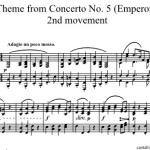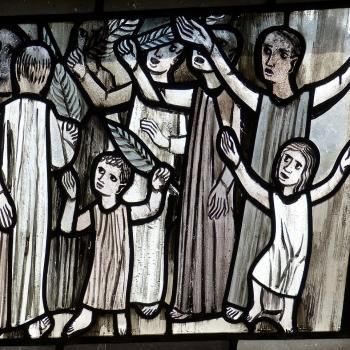In our never-ending search for excellent police dramas, Jeanne and I watched the first season of “The Wall” this past week. In French with subtitles (something we don’t normally do), the series is set in Fermont, Quebec, a mining town located in subartic landscape hundreds of miles northeast of Quebec City and Montreal, just a few miles from the Labrador border. I’ve already noticed that the second season (of three) of the series is set in Quebec City, one of the two destination cities of my youth.
I make no secret, on this blog or in person, of my love for Canada. I grew up just forty miles south of Quebec, visted both Montreal and Quebec City with my family at least twice per year every year through high school, have visited those cites many more times and have come to know and love Toronto as an adult, have a number of good friends as well as followers of this blog from Canada . . . Canada is awesome! So, when I saw this meme proposing the United States of Canada not long ago, a new country formed by adding nineteen current US states to Canada, leaving the remaining thirty-one states as the new nation of Jesusland, I knew I had to send it out on Facebook. “This is a seriously great idea,” I remarked in the introduction line.

Not surprisingly, dozens of comments and emojis began pouring in. There were, of course, my fellow academics who complained that the two-letter abbreviations of Pennsylvania and Maryland in the meme are wrong. I asked one of them if he had forgotten to take his good humor medicine that morning. Friends from Canada, in true Canadian fashion, said “you’re welcome any time—as long as our border is open to you!” Those who already live in one of the nineteen states that will form the southernmost portions of the United States of Canada expressed both strong support for the proposal and relief that they will be included.
Most interesting was the reaction of people who live in one of the other thirty-one US states. To a person, their complaint was “Hey! I want to leave Jesusland too!” Persons from Colorado, South Dakota, New Mexico, and Louisiana (specifically New Orleans) pleaded for creative gerrymandering that would include them as well. One good friend from Colorado proposed that a hundreds-of-miles-long bridge or tunnel be constructed that would connect her home northwards to Alberta.
Others thought that perhaps the original map of the USC was too generous. One person from Chicago suggested that the USC might regret inviting all of Illinois, while a Pennsylvania resident wondered whether many people in her state might prefer to stay in Jesusland. Of note, though, was that of the more than 100 comments I received within just a few hours of posting the map, no one thought the proposal was a bad idea. Instead, it was clear that my Facebook friends lobbied creatively to be included in the United States of Canada. This was not because everyone said that Canada is awesome (although it is). The primary motivation was clearly that everyone is sick to death of living in Jesusland. That should tell you something about how carefully I cull my Facebook friends list.
I was raised in Jesusland on steroids. My USC meme and the subsequent conversations it generated reminded me of a time fifteen or so years ago when I encountered a Jesusland offshoot. My friend Michael lives with his family in Florida. That in itself makes me wonder how he can be my best friend. Given our academic professions, Jeanne and I can only visit when school is not in–we just saw Mike and Suzy for a couple of days two weeks ago. It would be much more convenient if Michael and Suzy moved to Alaska—Jeanne and I have always wanted to visit there. But there probably are few Alaskan opportunities in Michael’s line of work. He’s a Catholic theologian.
Michael and his family live in one of those large Florida subdivisions where everyone has a lanai, a pool, and exclusively St. Augustine grass in their lawns. The subdivision’s yard Nazis would torch my clover and crab grass dominant lawn in a heartbeat. The first summer Jeanne and I visited a number of years ago–before the ubiquity of GPS–we managed to make it to within a mile of Michael and Suzy’s house in a driving rainstorm, but then turned left instead of right. After floating through empty acreage for several minutes, a huge building under construction loomed directly in front of us. “I don’t think this is it,” Jeanne helpfully remarked. Once we found our way to Mike and Suzy’s, I asked him about the vast expanse where we had been lost. “That’s where they’re building Six Flags Over Jesus.”
“That’s where they’re building Six Flags Over Jesus.”
Six Flags Over Jesus is a gigantic Baptist megachurch that has grown too big for its britches at least twice over the years. Chances are they won’t outgrow this “campus,” as they call it. The sanctuary is massive, surrounded by hundreds, perhaps thousands, of prime acres ready and waiting to be developed for Jesus. There is ample room for schools at all levels, recreational fields galore, a theme park, a planned community, and a hospital.
Six Flags Over Jesus is deliberately planned in such detail that a person could be born, raised, educated, married, raise little megaBaptists, take vacations, get old, be put in a nursing home, die, and be buried without ever leaving the grounds. The foyer of the church includes a Starbucks to help parishioners manage the down time between Sunday School and morning worship.
A Disney-esque trolley shuttles church goers from the distant parking lots to the front of the sanctuary. I was disappointed to discover that the parking areas are identified simply by color—Blue, Red, Yellow—rather than by something more imaginative, such as the twelve disciples. Those who arrive early could park in Peter, James, or John. Late arrivers would be consigned to the Judas Iscariot lot. They would have to pay for their ride to the sanctuary, waiting until the offering collection for the usher to unlock the doors and let them in.
I have never been inside the church, but that doesn’t stop me from being critical. This is where I come from. Inject my childhood church with steroids and fund it with unlimited resources, and you get Six Flags Over Jesus. Michael, Suzy, Jeanne and I have conversed frequently about the horror of it all—the worst of American capitalism joined in unholy matrimony with the shallowest and narrowest of Christian evangelicalism and fundamentalism. This is a union guaranteed to produce the offspring of intolerance, judgmentalism, sanctimonious exclusivity, and simplistic neuron-destroying certainty. I have wondered aloud what temple-cleansing Jesus would do if dropped into the foyer of this church with its Starbucks and God knows what else. I can see the painting now: “Jesus Overturning the Baristas.” No wonder leaving Jesusland and becoming a citizen of the United States of Canada is such an attractive proposition.
It’s comforting to know what the divine prefers in terms of worship, or at least to know what he/she/it definitely doesn’t want. My updated Pharisee prayer from Luke 18 would read “God, I thank thee that I am not as other people are, extortioners, unjust, adulterers, or even as this fundamentalist, Starbucks-drinking, Jesusland loving, Six Flags Over Jesus Baptist guy over here.” I’m pretty sure I know roughly how the order of worship goes at Six Flags Over Jesus—I saw the error of those ways and left them behind years ago.
But there is another prayer in Luke 16, somewhat shorter and less confident. The publican prays “God be merciful to me a sinner.” Slightly expanded, “God be merciful to me, just another flawed, limited, imperfect human being who wants to know and worship you as best as he can and as much as you will allow.” It is truly shocking just how many varieties of attempts at worship the divine is apparently willing to tolerate as human beings occasionally look upwards.
The very idea of trying to figure out God’s favorite ways of being worshiped is a stunner at its core. Annie Dillard writes that “I often think of set pieces of liturgy as certain words that people have successfully addressed to God without getting killed.” And yet God invites our worship. If I presume that God’s standards preclude divine attendance at Six Flags Over Jesus or citizenship in Jesusland, I’d better remember that the divine standards are broad enough to include even me. The divine love respects no boundaries, certainly not mine.
God in the flesh was remarkably flexible and welcoming with respect to everyone who crossed his path. What would Jesus do if he dropped by the foyer of Six Flags Over Jesus on a Sunday morning? He’d order a double espresso macchiato grande. Sometimes the morning service goes overtime.

















